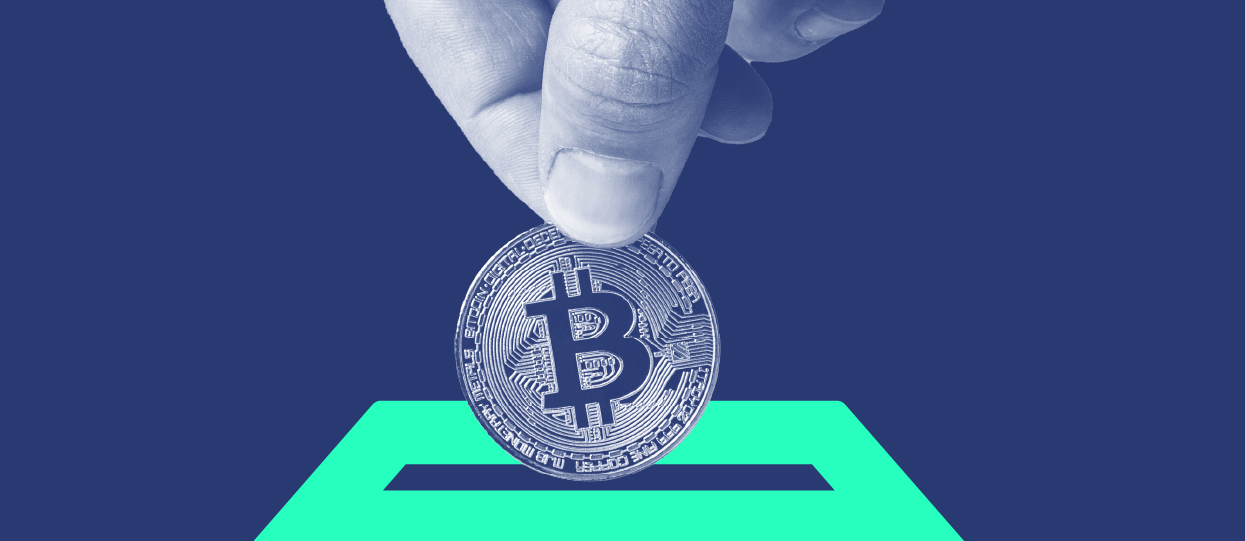Episode 2 of Public Key, the Chainalysis podcast, is here!
You can listen or subscribe now on Spotify, Apple, or Audible. Keep reading for a full preview of episode 2.
Public Key Episode 2 preview: Ukrainian fundraising with cryptocurrency, Russian crypto whales, and more
Soon after Russia’s invasion, Ukrainian leaders knew they had to raise charitable donations for weapons, armor, and other supplies for the war effort. But due to the military nature of the spending, many traditional fundraising methods were restricted for Ukraine. That’s when the country decided to leverage the power of cryptocurrency to raise funds from donors around the world.
In this episode of Public Key, our host, Ian Andrews, CMO at Chainalysis, sits down for an encore presentation with his colleagues, Kimberly Grauer, Director of Research, and Salman Banaei, Head of Public Policy for North America, to discuss emerging cryptocurrency adoption in Ukraine and the benefits of cryptocurrency humanitarian fundraising efforts.
The trio also touches on how illicit actors take advantage of these crises for scamming, and on whether or not cryptocurrency exchanges should heed Ukrainian officials’ requests to ban Russian users from their platforms — this comes as ruble trading volumes on exchanges have spiked in recent weeks. The informative discussion continues with data-driven reasoning as to why Russian oligarchs are not evading sanctions via large value cryptocurrency transactions. Finally, the panel concludes the conversation by examining inflows and outflows of cryptocurrency exchanges frequented by Russian users and analyzing the activity of Russian cryptocurrency whales.
Quote of the episode
Two years ago, we created the Geography of cryptocurrency index, where we actually saw Ukraine was number one on our index … so we saw that Ukraine had a really, really strong cryptocurrency ecosystem already – Kim Grauer, Director of Research, Chainalysis
Minute-by-minute episode breakdown
- (1:05) – How Cryptocurrency usage is being adopted by Ukraine and other jurisdictions
- (3:50) – The benefits of Cryptocurrency when traditional financial markets are restricted
- (5:20) – Scams that take advantage during crisis and political turmoil
- (8:25) – Should cryptocurrency exchanges restrict non-sanctioned Russian users
- (10:05) – Why NGOs could start using cryptocurrency for relief efforts and the use of the Ruble
- (12:05) – Oligarchs don’t appear to be using large amounts of cryptocurrency to evade sanctions
- (14:55) – The net outflows of Russian cryptocurrency exchanges remain relatively flat
- (16:05) – Most concentration of cryptocurrency whales were in the Russian Time zones
Related resources
Check out more resources from Chainalysis that perfectly complement this episode of the Public Key.
- Blog: Cryptocurrency Brings Millions in Aid to Ukraine, But Could It Also Be Used For Russian Sanctions Evasion?
- Report: The Chainalysis 2021 Geography of Cryptocurrency Report
- Webinar: The Chainalysis 2021 Geography of Cryptocurrency Report, Part 1 of 2
- Blog: Six Steps Exchanges Can Take to Comply With Cryptocurrency Sanctions
- Report: The Chainalysis 2022 Crypto Crime Report
- CoinDesk: Ukraine Details What Crypto Donations Are Being Spent On
Speakers on today’s episode
On today’s episode, you’ll hear from:
Ian Andrews, Public Key host and Chief Marketing Officer, Chainalysis | LinkedIn | Twitter
Kimberly Grauer, Director of Research, Chainalysis | LinkedIn | Twitter
Salman Banaei, Head of Public Policy for North America, Chainalysis | LinkedIn | Twitter
This website contains links to third-party sites that are not under the control of Chainalysis, Inc. or its affiliates (collectively “Chainalysis”). Access to such information does not imply association with, endorsement of, approval of, or recommendation by Chainalysis of the site or its operators, and Chainalysis is not responsible for the products, services, or other content hosted therein.
Our podcasts are for informational purposes only, and are not intended to provide legal, tax, financial, or investment advice. Listeners should consult their own advisors before making these types of decisions. Chainalysis has no responsibility or liability for any decision made or any other acts or omissions in connection with your use of this material.
Chainalysis does not guarantee or warrant the accuracy, completeness, timeliness, suitability or validity of the information in any particular podcast and will not be responsible for any claim attributable to errors, omissions, or other inaccuracies of any part of such material.
Unless stated otherwise, reference to any specific product or entity does not constitute an endorsement or recommendation by Chainalysis. The views expressed by guests are their own and their appearance on the program does not imply an endorsement of them or any entity they represent. Views and opinions expressed by Chainalysis employees are those of the employees and do not necessarily reflect the views of the company.
